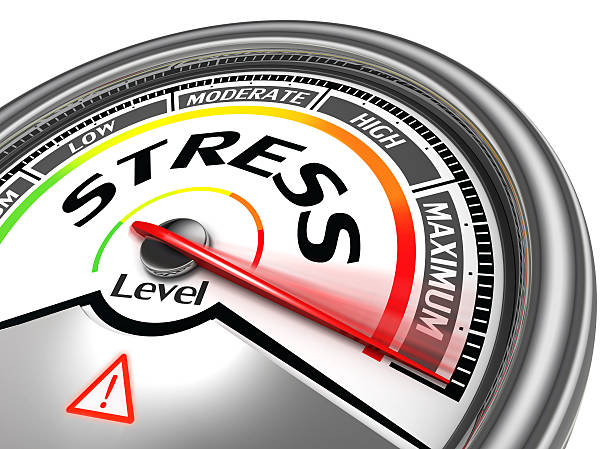How to Manage And Reduce Stress
You might be going through a lot right now. You are being exposed to many types of stress via these. Understanding how to control and reduce stress is crucial for our overall health. Most people create positive pressures set up to aid them in completing a task within a certain amount of time.
In the meantime, these pressures can take the form of deadlines, requirements, goals, or even group participation, which enables people to fulfill their demands or wishes. People work very hard to fulfill these responsibilities. These ultimately lead to weariness (stress).
What is stress?
Stress is simply the adverse reaction people have towards excessive pressure; exceeding one breaking point (threshold) to pressure which causes exhaustion.
What are the forms of stress?
Stress can be physical, mental, emotional, or a result of a health condition.
- Physical stress: this is usually a result of effort exerted towards a goal. For instance, doing activities such as pushing a wheelbarrow, driving, cleaning, exercise, and all other physical tensions, can cause physical stress.
- Mental stress: this is usually more of academic works as seen in students preparing for their exams or evidence-based projects. This form of exhaustion can cause mental fatigue.
- Transitional stress: starting a new phase of life causes this crisis . For instance, getting married, new promotion and job role, relocation, puberty-to-adulthood, menopause, can cause this form of stress.
- Emotional stress: these are stress from separation from loved ones. For instance, grieve, divorce, crushing on someone, breakup from a romantic relationship, etc.
- Health conditions: Furthermore, health problems such as respiratory distress, cardiovascular deficiency, pain, can lead to uncontrollable stress exertion.
How to manage and reduce stress: types of stress?
There are three types of stress according to the American Psychological Association, which include acute stress, acute episodic stress, and chronic stress.
- Acute stress: these are momentary tensions like; reaching a deadline, nearly crashing a car, sudden unpleasant events, anxiety about the outcome, writing a timed exam, suspense in movies and virtual games, etc. This type of pain does not affect our interpersonal relationships and other activities of life, it resolves on its own. However, this type of tension triggers headaches, panic, increased heart rate, blood pressure, and some other effects of fight-or-flight reactions.
- Episodic acute stress: these are numerous repetitive/continuous mini-crises of activities of daily living which exceed breaking point (stress threshold) and can result in severe conditions like depression, Brain fatigue, exhaustion, and so on if poorly managed. To clarify, in this type of stress, one lives in a state of tension with an overwhelming daily routine knowingly or unknowingly which may cause a loss of interest in fun activities, career, and interpersonal relationships to meet deadlines. Meanwhile, the help of a professional therapist and a change of routine can be a tremendous remedy.
- Chronic stress: this type of tension results from a prolonged episode of trauma or an ongoing prolonged unsolvable stress. For instance, war, poverty, chronic illnesses, racism (apartheid regime), traumatic road accidents, etc. Certainly, most sufferers of this type of day-to-day unending stress tend to live with it and are reluctant to seek help.
What are the stages of stress?
Stress doesn’t just happen suddenly; the stages are as follows.
- Alarm (fight or flight): Your body will first sense the feeling of being stressed. This stage is usually ignored especially when you haven’t completed a task with a close deadline. The body usually produces adrenaline and cortisol hormones naturally at this stage and the crises tend to resolve after you withdraw from the stressor.
- Resistance stage (Damage control): At this phase, the hormones produced at the first stage of stress helps in adjusting to the stressor. Often, people call it “perseverance” which is one of the keys to achievement in life. However, this stage is delicate in stress management.
- Recovery (coping): This is the point of rest from the stress, the body takes a break to relax and overcome the crises through sleep, walking, exercise, healthy eating, or any other relaxation technique. Meanwhile, this stage is the begining of healing
- Adaptation: This is the stage when instead of taking out time to rest, we choose to complete the task before we finally retire from it. The body continues to adapt to the workload until exhaustion.
- Burnout: This is the last stage of the crisis where the brain may suffer moderate to severe damage, due to prolonged stress. In other words, it is a state of prolonged excessive emotional, physical, and mental exhaustion.
What are the causes of stress?
- Socioeconomic factors: being under lots of peer pressure, facing the disappointment of life such as unemployment, poverty, homelessness, hunger, debt, unfriendly neighbours/colleagues.
- Transitional factors: puberty-to-adulthood, parenthood, pregnancy, a promotion at work, promotional exams, menopause, relocation, new job expectations/nervousness, retirement, marriage, etc.
- Physical factors: when you worry about something, the unknown outcome of a problem, overwhelming responsibilities, prolonged unchanged life routine, exams and deadlines, being overwhelmed by technology such as keeping up with cell phone messages, e-mails, and text messages
- Emotional factors: divorce, bereavement, breakup, family disputes, feeling of being unwanted
How do I know that I am stressed?
Effects of stress on people differ. However, this can be behavioral, emotional, or physical attitudes.
- Behavioural: easily irritated, depressed, low motivation, increased appetite, loss of appetite, smoke more, drink more, aggressive, poor concentration, forgetful, restless, low sex drive, negative thoughts, self-blame, isolation, worry more, etc. However, one can identify these feelings
- Emotional: crying, mood swings, unhappy, feeling out of control, frustrated, isolated, can’t think straight, nervous, snappy, lonely, low self-esteem, angry, defensive, hypersensitive to criticism, dry vagina,, feeling helpless. In other words, there is low energy with occasional unneccessary outbbursts.
- Physical: Finally, Increased pulse, elevated blood pressure, fast breathing, feeling sick, dry mouth, diaphoresis, body aches and pains, blurred vision, flushed, tiredness, etc.
What are the ways to manage and reduce stress?
- know your stressors and avoid them as much as possible.
- Identify routine crises and change or amend them if possible.
- know your early warning/alarm signs of stress and curb the tension to avoid burnout.
- Identify your coping strategies, what you can do to relax and feel refreshed.
- know your threshold, the extent your body can persevere.
- Identify your unhealthy coping strategies and avoid them.
But it is important to practice these as much as it is important to know them
Healing from stress: how to manage and reduce stress
Doing the following can help you heal from stress
- Seek professional therapist help.
- Mindful breathing exercise.
- Social support; could be your friends, colleagues, or family.
- Positive thinking.
- Developing a Self-assessment checklist.
- Developing an action plan for coping with stress.
- Exercise
- Healthful eating
- Satisfying s@x
- Quiet time for reflection and meditation
- Recreational activities
- Take control of your personal life
- Take breaks from work for vacation
- Have time away from electronic devices and frequently spend time in nature.
However, it is not just enough to know these. But you should practice them
What are the unhealthy stress coping strategies?
Contrarily, you should avoid these strategies as much as possible
- Unhelpful thoughts
- Mind reading
- Self-blame
- Catastrophising
- Dismissing positive thoughts
- Unrealistic demands on self
- Transference
- Regular self-medication and alcohol
- Couch potato
- Overthinking and negative thoughts
- Isolation
- Routine subjective adaptation to stress.






